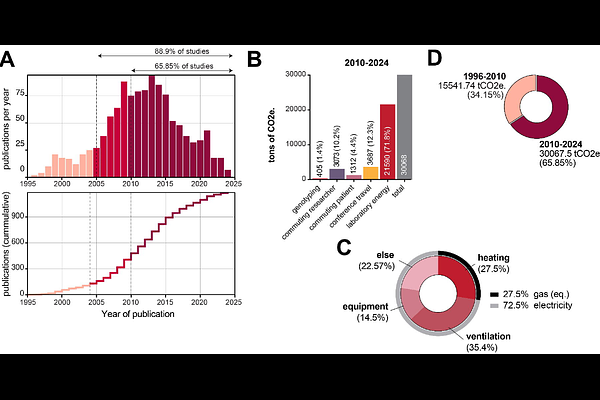The carbon footprint of science when it fails to self-correct

The carbon footprint of science when it fails to self-correct
Farley, M.; Munafo, M. R.; Lewis, A.; Nicolet, B. R.
AbstractScience is, in principle, self-correcting, but there is growing evidence that such self-correction can be slow, and that spurious findings continue to drive research activity that is no longer justified. Here we highlight the environmental impact of this failure to self-correct sufficiently rapidly. We identified a non-fraudulent occurrence of irreproducible findings: the literature on the association between genetic variation in the serotonin transporter gene (5-HTTLPR) with anxiety and depression. An initial report in 1996 found evidence for an association, but a study as early as 2005 that was three orders of magnitude larger found no evidence for an association. However, studies investigating this association continue to be published. We isolated 1,183 studies published between 1996 and 2024 that investigated the association and calculated an estimated carbon footprint of these studies. We estimate that the failure to self-correct had a footprint of approximately 30,068 tons of CO2 equivalent. Our aim is to present a case study of the potential carbon footprint of research activity that is no longer justified, when a theory is disproven. We highlight the importance of integrating self-correction mechanisms within research, and embracing the need to discontinue unfruitful lines of enquiry.